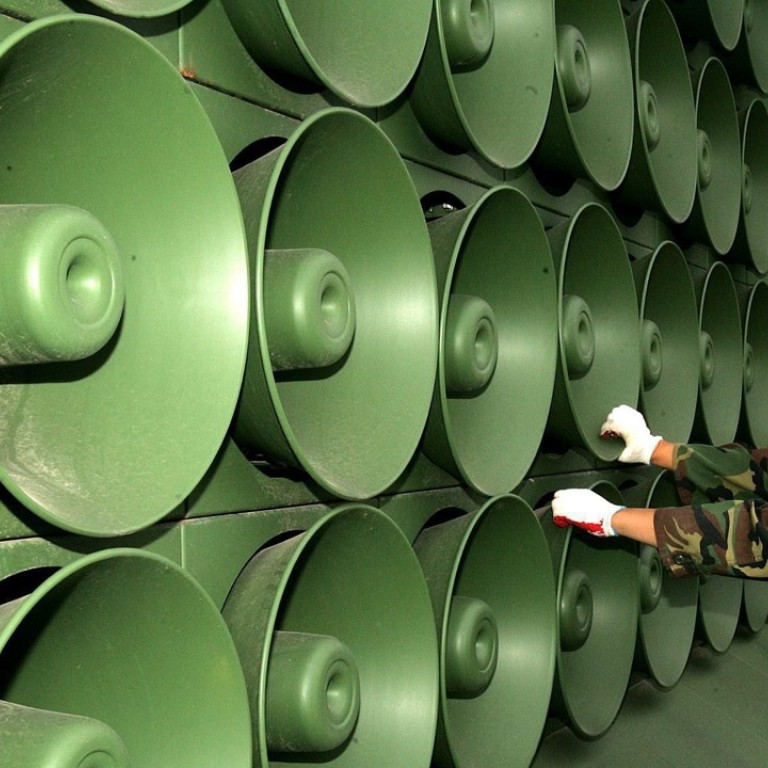
South Korea to remove propaganda loudspeakers at border in step toward reconciliation with North
The two Koreas have conducted propaganda broadcasts on and off for decades at the border, with the South Korean speakers sending out K-pop music and various messages to persuade North Koreans of the superiority of the South Korean system
South Korea will remove propaganda-broadcasting loudspeakers from the border with North Korea this week, officials said Monday, as the rivals move to follow through with their leaders’ summit declaration that produced reconciliation steps without a breakthrough in the nuclear stand-off.
During their historic meeting Friday at a Korean border village, North Korean leader Kim Jong-un and South Korean President Moon Jae-in agreed to end hostile acts against each other along their tense border, establish a liaison office and resume reunions of separated families.
They also agreed to achieve a nuclear-free Korean Peninsula, but failed to produce specific time frames and disarmament steps.
Seoul’s Defence Ministry said it would pull back dozens of its frontline loudspeakers on Tuesday before media cameras. Ministry spokeswoman Choi Hyunsoo Seoul expects Pyongyang to do the same.
The two Koreas had been engaged in cold war-era psychological warfare since the North’s fourth nuclear test in early 2016.
Seoul began blaring anti-Pyongyang broadcasts and K-Pop songs via border loudspeakers, and Pyongyang quickly matched the South’s action with its own border broadcasts and launches of balloons carrying anti-South leaflets.

The closing of the Punggy-ri test site, where all six of North Korea’s atomic bomb tests occurred, could be an eye-catching disarmament step by Pyongyang.
But there is still deep scepticism over whether Kim is truly willing to negotiate away the nukes that his country has built after decades of struggle and sacrifice.
Kim’s meeting with Moon was his second summit with a foreign leader since he took office in late 2011.
In March, he travelled to Beijing and met with Chinese President Xi Jinping. While meeting with Xi, Kim suggested he prefers a step-by-step disarmament process in line with corresponding outside rewards, according to Chinese state media.
US officials want the North to take complete, verifiable and irreversible disarmament measures.
China said Monday that Foreign Minister Wang Yi would visit Pyongyang on Wednesday and Thursday.
China is the North’s only major economic partner, but trade has declined by about 90 per cent following Beijing’s implementation of economic sanctions imposed over the North’s nuclear and missile tests.
Some analysts say Kim’s recent charm offensive was aimed at weakening the sanctions.
Additional reporting by Kyodo

